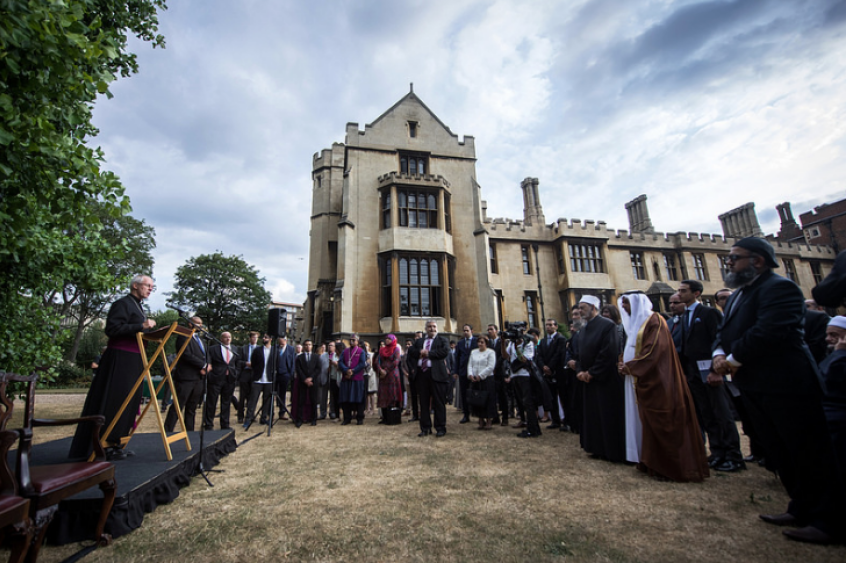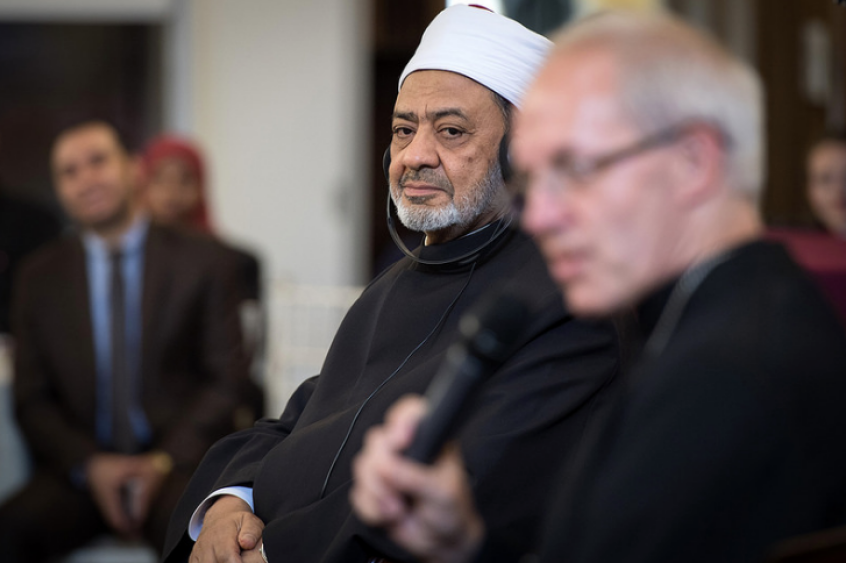The Archbishop of Canterbury hosted the Grand Imam of Al-Azhar, Shaykh Dr Ahmad al-Tayyeb, this week to discuss how religious leaders can help faith communities address conflict and help their societies to thrive.
The visit celebrated the Emerging Peacemakers Forum, which brought together 50 young Christians and Muslims from around the world to learn about peacebuilding, reconciliation and leadership.

The bishop of Egypt, Mouneer Anis, was present throughout the visit, as were Anglican leaders from places including Pakistan, Bangladesh and the Holy Land.
The Emerging Peacemakers Forum emerged from a meeting between the Archbishop and the Grand Imam in Abu Dhabi in 2016.
The Forum, which was held over nine days at Churchill College, Cambridge, and Lambeth Palace, gave the young leaders a chance to explore what makes their faiths unique and different while working side by side to address conflict across barriers of faith and culture.
It was run in partnership with the Rose Castle Foundation, Al-Azhar University, the University of Cambridge Inter-faith Programme and the Council of Muslim Elders.

Archbishop Justin Welby said: 'The impact of these young peacemakers coming together has been even greater than we hoped. It's been full of creative ideas. They have demonstrated their deep commitment to peacemaking in teams – of going together and building their capacity to be ambassadors for peace.
'The days – we hope and pray – of the great World Wars may have passed, but all over the world there are conflicts of extreme severity. It doesn't matter if you're a conflict where one person is killed or where 1,000 are killed. If you are the relative of that one person, for you that is the ultimate conflict.
'And so we need ambassadors for peace, at community, regional, national and international level. And they are coming up with ideas that I think will be literally world-changing. We are looking forward to seeing how this all develops.'
He told the participants: 'Don't let this investment of creative time and energy be wasted. Plan today for how what you have learned will be embedded, deepened, developed, over the years to come.'
As part of the visit, the two leaders hosted a dialogue meeting between Anglican and Al-Azhar delegations. The Anglican delegation included Bishop Mouneer, Bishop Humphrie Peters (Pakistan), Moderator Paul Sarker (Bangladesh), Dean Hosam Naoum (Jerusalem) and Bishop of London Sarah Mullally.
They also met with the Christian Muslim Forum to hear about their work and relations between Christians and Muslims in the UK.
The Archbishop and the Grand Imam were then shown the Birmingham Qur'an, one of the oldest surviving Islamic manuscripts, by experts from the University of Birmingham.
The formal relationship between the office of the Archbishop of Canterbury and the Grand Imam of al-Azhar was officially established in 2002 after the events of 9/11 in 2001.
Archbishop George Carey and His Eminence Sheikh Mohamed Sayed Tantawy believed it was important to encourage learning and dialogue between the Christian and Muslim faiths.
It was agreed that there would be an annual meeting for the principals, alternating between London and Cairo, followed by a meeting of a delegation from the Anglican Communion and from Al-Azhar to discuss a topic of common interest and concern.













